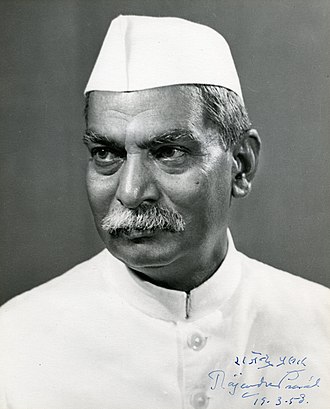Rajendra Prasad - India's First President and Inspirational Leader
Learn about Rajendra Prasad, India's first President, and his legacy as a respected leader, prolific writer, and dedicated public servant. Discover his contributions to India's political and social development, his achievements, his family background, and more.
When it comes to the history of India, Rajendra Prasad's name stands out as one of the most significant figures. He was India's first President, a highly respected and revered leader who played a crucial role in shaping the country's political and social structure. This article provides an in-depth overview of Rajendra Prasad's life, accomplishments, family history, and more.
Early Life and Education
Rajendra Prasad was born on December 3, 1884, in the village of Zeradei, Bihar, in a traditional Brahmin family. Prasad's elder brother, Mahendra Prasad, was a renowned lawyer and social reformer, who had a profound impact on his life. Rajendra Prasad was an exceptional student and earned a Doctorate of Science in Economics from the University of Dublin.
Role in the Indian Independence Movement
Prasad played a pivotal role in the Indian independence movement and was actively involved in several significant movements. He was a prominent member of the Champaran Satyagraha, which was led by Mahatma Gandhi, and played a vital role in organizing the peasants in the area. He was also actively involved in the Non-Cooperation Movement, the Civil Disobedience Movement, and the Quit India Movement.
President of the Constituent Assembly
After India gained independence in 1947, Rajendra Prasad was elected as the President of the Constituent Assembly. He played a vital role in drafting the Indian Constitution, which is one of the longest written constitutions in the world. The Constitution was adopted on November 26, 1949, and came into effect on January 26, 1950.
First President of India
In 1950, Rajendra Prasad was elected as the first President of India, and he served in that role for two terms until 1962. During his presidency, Prasad worked to strengthen the role of the President and uphold the values of the Indian Constitution. He was a respected leader known for his simplicity, humility, and dedication to public service.
Accomplishments
Prasad's presidency was marked by numerous accomplishments, including the establishment of the National Cadet Corps (NCC) and the expansion of India's diplomatic relations with other countries. He was a strong advocate of education and believed that it was the key to India's progress. His efforts laid the foundation for the modern education system in India.
Personal Life and Legacy
Rajendra Prasad was a prolific writer, scholar, and deeply spiritual person. He was married to Rajavanshi Devi, and the couple had three children together. His legacy continues to inspire generations of Indians, and his life and work remain a shining example of the highest ideals of public service, social justice, and national unity.
Conclusion
In conclusion, Rajendra Prasad was a remarkable leader who dedicated his life to the service of the people of India. His contributions to India's political and social development are unparalleled, and his legacy continues to inspire and guide the country. As India's first President, he set a high standard for future leaders to follow. His life and work remind us of the importance of humility, dedication, and service to the community. Rajendra Prasad remains an inspiration to us all.

Comments
Post a Comment